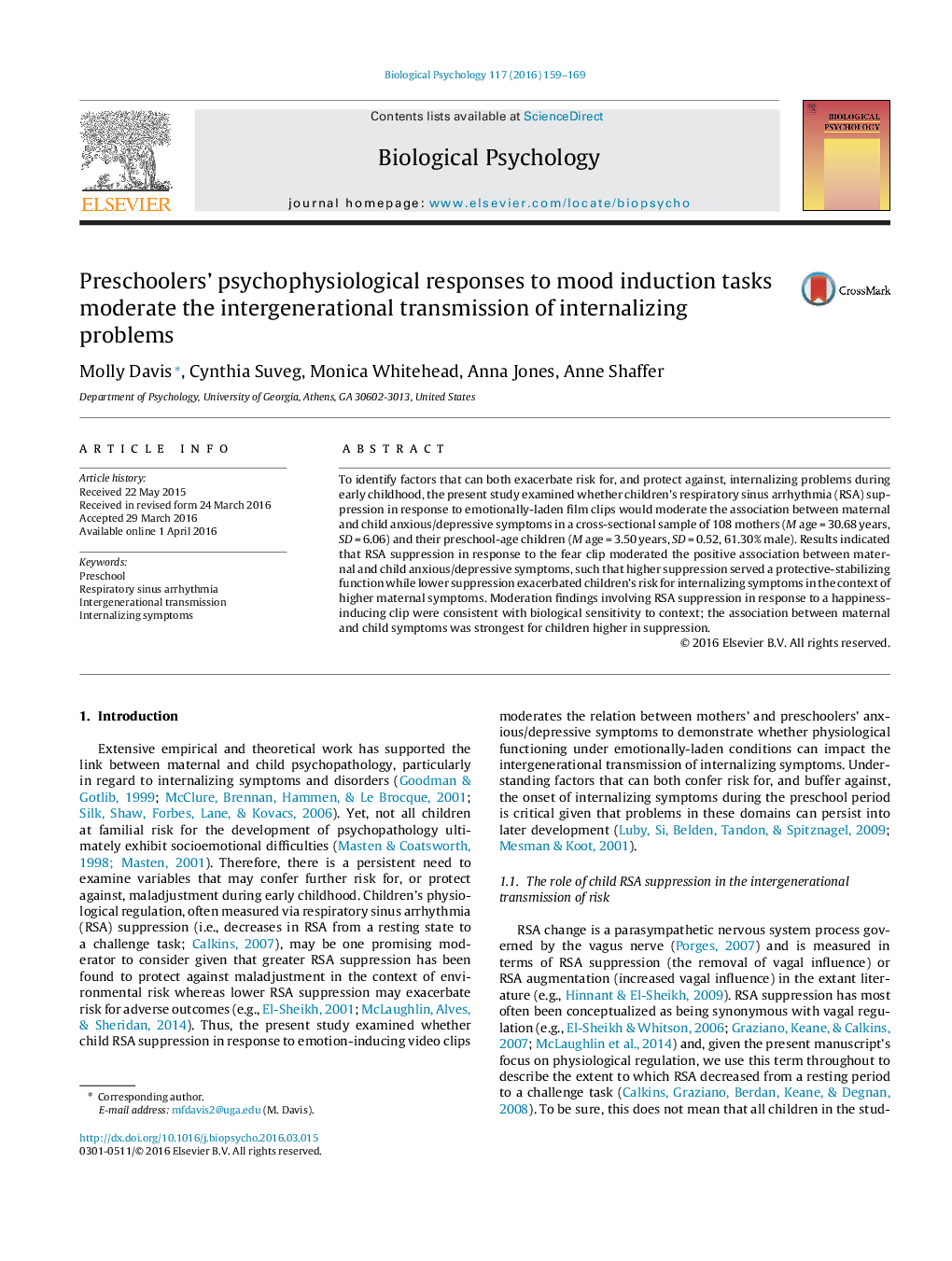| کد مقاله | کد نشریه | سال انتشار | مقاله انگلیسی | نسخه تمام متن |
|---|---|---|---|---|
| 920708 | 1473856 | 2016 | 11 صفحه PDF | دانلود رایگان |
• Child RSA moderated the relation between mom and child internalizing problems.
• Lower fear RSA suppression exacerbated risk for child internalizing problems.
• Higher fear RSA suppression served a protective-stabilizing function.
• Happiness RSA suppression followed a biological sensitivity to context framework.
• Results can advance models of the intergenerational transmission of psychopathology.
To identify factors that can both exacerbate risk for, and protect against, internalizing problems during early childhood, the present study examined whether children’s respiratory sinus arrhythmia (RSA) suppression in response to emotionally-laden film clips would moderate the association between maternal and child anxious/depressive symptoms in a cross-sectional sample of 108 mothers (M age = 30.68 years, SD = 6.06) and their preschool-age children (M age = 3.50 years, SD = 0.52, 61.30% male). Results indicated that RSA suppression in response to the fear clip moderated the positive association between maternal and child anxious/depressive symptoms, such that higher suppression served a protective-stabilizing function while lower suppression exacerbated children’s risk for internalizing symptoms in the context of higher maternal symptoms. Moderation findings involving RSA suppression in response to a happiness-inducing clip were consistent with biological sensitivity to context; the association between maternal and child symptoms was strongest for children higher in suppression.
Journal: Biological Psychology - Volume 117, May 2016, Pages 159–169
